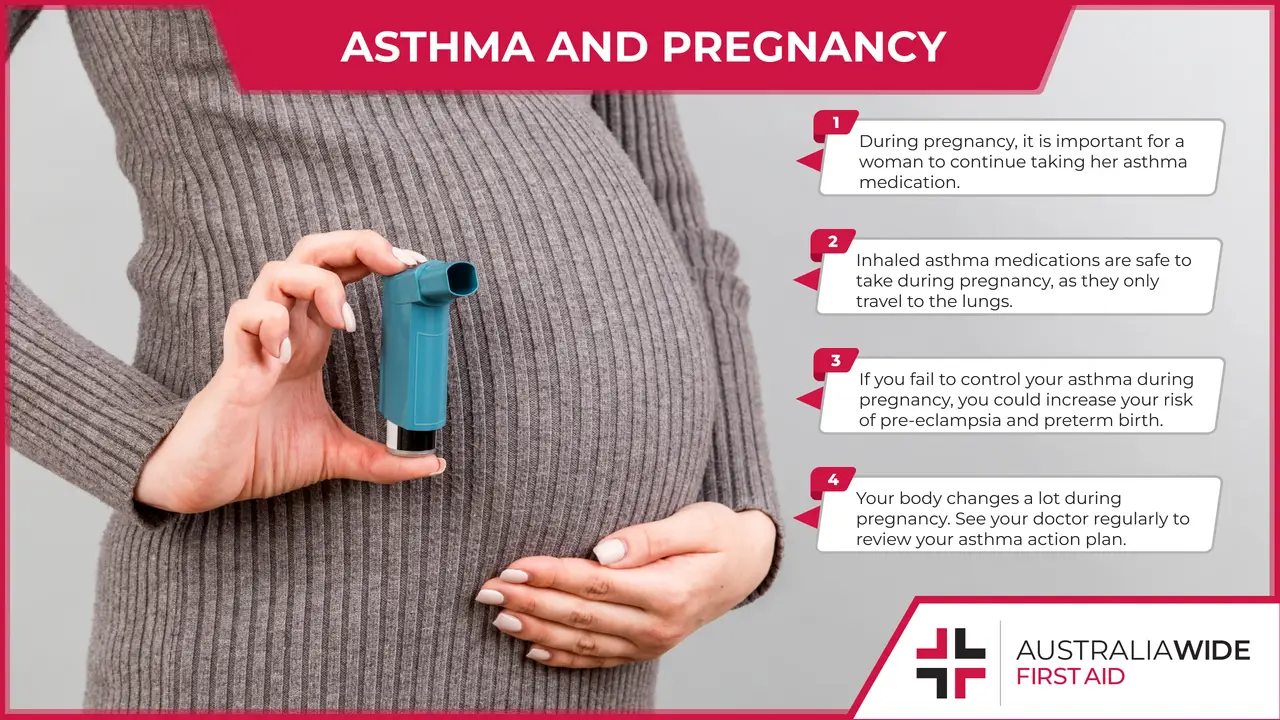Asthma and Pregnancy


During pregnancy it is important that a woman continues to take her asthma medication. Some people feel uneasy about using asthma medication while pregnant , however, failing to maintain asthma control during pregnancy can put an unborn baby at risk. Maintaining effective asthma control during pregnancy is important for the health of both mother and baby.
If you are asthmatic and you become pregnant there are four things you should remember:
When a woman is pregnant her body will go through many changes. A woman’s asthma may also change during pregnancy. In some cases it may become more severe, for others it may improve, while some women don’t experience any changes. For this reason, it is important that a woman sees her doctor to review her asthma action plan at different stages in the pregnancy.
Most asthma medication is safe during pregnancy. While there is some evidence that suggests oral corticosteroids can pose a slight risk to the baby, inhaled asthma medications only travel to the lungs rather than the whole body, which makes them very safe during pregnancy. It is much safer for a pregnant woman to manage her asthma with appropriate medications than for her to stop controlling her asthma and experience symptoms and exacerbations. If you become pregnant you should check with your doctor to ensure you are using the appropriate medication.
If you fail to control your asthma well during pregnancy, and have an asthma attack, you increase the risk of:
This is because, if you can't breathe, your baby can't breathe.
Good asthma control will reduce these risks. The goal of effective asthma management during pregnancy is to maintain a healthy flow of oxygen for normal foetal development as well as maintaining a healthy quality of life.
It is very unlikely that you will experience an asthma attack during labour. The risk of an asthma attack during birth is extremely rare except in the most severe cases. To be on the safe side you should make sure you have access to your asthma medication at all times, including when you are in hospital. If you do experience asthma symptoms during labour, you should use your reliever medication as you normally would.
Information sourced from National Asthma Council Australia and Better Health Channel.
For more information on how to prevent, identify, and manage symptoms of an asthma attack, check out our Resource Library or book a first aid course near you.

October 2, 2013
In an asthma or anaphylaxis emergency you should know the symptoms, remove triggers, and know how to respond. Read on to understand these important aspects in the context of such an emergency.

May 7, 2024
Asthma, a chronic respiratory condition affecting millions worldwide, is often shrouded in myths and misconceptions. Despite how common it is, there is a distinct lack of common knowledge. This is leading to potential mismanagement and unnecessary anxiety for those living with asthma.

February 19, 2024
For many Australians, our city and outdoor lifestyles come with a hidden challenge – dust allergies. Dust mites, pollen, and other airborne particles can trigger allergic reactions, affecting a significant portion of the population.